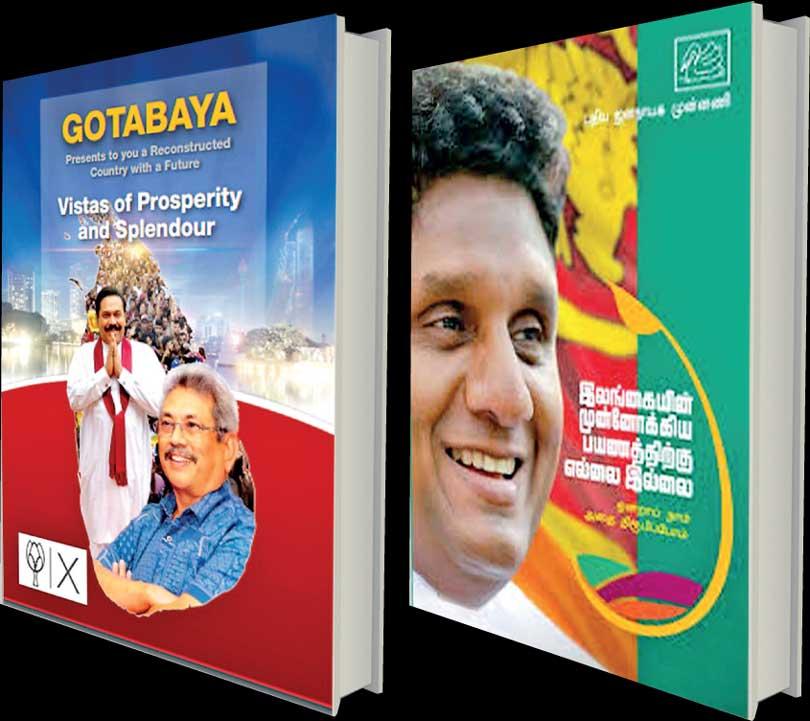Reply To:
Name - Reply Comment

Promises galore: But are they implementable?
 In the afterglow of the 1969 moon landing, a political analyst quipped that if politicians had been like Pinocchio, Neil Armstrong and Buzz Aldrin would have been disappointed to note that before they set foot on the moon, the noses of most of the earth’s politicians had already reached the surface of the moon.
In the afterglow of the 1969 moon landing, a political analyst quipped that if politicians had been like Pinocchio, Neil Armstrong and Buzz Aldrin would have been disappointed to note that before they set foot on the moon, the noses of most of the earth’s politicians had already reached the surface of the moon.
Today we may have to say that the points of their ever lengthening noses would be touching our galaxy’s black hole, some 27,000 light
years away.
Their lies which come to us largely in the form of promises from political platforms have a gravity that makes super gravities of black holes look insignificant. Gullible voters often fall into their promise traps headlong.
Until and unless we come up with a system of accountability and holding politicians legally responsible for the promises they give to the sovereign people during election times, the unscrupulous will continue to promise the sun and the moon and paint a picture of a paradise under their governments in our minds.
The politically more mature voter knows from the word go that what comes out of boneless tongues of politicians is not to be taken seriously. However, in Sri Lanka, which boasts of a 90 plus literacy rate, many voters are still gullible. They get carried away by promises politicians make. Until they ask themselves whether the country has enough wealth to implement these promises, they will remain politically illiterate and will be culpable in the crime of electing a dishonest politician, a kleptocrat or a dictator.
In this regard, Singapore’s illustrious leader Lee Kuan Yew’s remarks about Sri Lanka’s elections still ring true. He said Sri Lanka’s elections were an auction of nonexistent resources.
One wonders whether our promise-peddling candidates have ever heard of the term fiscal deficit. With great difficulty and some luck, our finance ministry mandarins may work out a balance-of-payment surplus, but since Independence, they have been beset with the crisis of budget deficit, except in two years in the 1950s.
In coping with economic crises, most countries often come under pressure from lending agencies to bring the fiscal deficit within a reasonable limit. Sri Lanka’s present government has set a 4.4% fiscal deficit target as a condition to obtain the US$ 1.5 billion International Monetary Fund assistance. But it could be as much as 5.4% or more for the current year. Besides, we are a debtor nation, borrowing on a regular basis to repay our growing foreign loans. By the end of last year, the country’s public debt had reached a record 90 percent of our GDP with the external debt amounting to US$ 55,469.49 million. With the country struggling to cope with the debt crisis, political promises, if implemented, will see the budget deficit soaring to record levels, while the economy will be hurtling towards self-destruction. No wonder, economists are aghast at the unrealisable promises the politicians dish out with much ease. However, for the economists, the consoling factor is that politicians, once elected, seldom implement these promises.
But can we let such politicians go free as so many political racketeers have been gone unpunished in recent years? Is it not a breach of trust, if politicians, upon being elected, bin their promises with which they dupe the sovereign people?
In some advanced democracies, public enthusiasm to hold politicians accountable for promises they make is high. Former New York mayor Michael Bloomberg was once jolted by a question a city resident asked him. Bloomberg was confronted by a civic conscious citizen — Anthony Santa Maria — at a subway station during his 2001 campaign to become New York’s mayor. Santa Maria scoffed at the promises politicians make. But the criticism did not make Bloomberg angry. Instead, it inspired him to release an annual status report on his 381 campaign promises. When he completed his first term as mayor in 2005, his annual report said 87 percent of the promises had been fulfilled. His final Campaign Accountability Report released in 2013 at the end of his third term showed he had implemented 89 percent of the 611 combined promises made during the three campaigns. Bouquets to Mr. Bloomberg!
Sri Lanka’s governments may not have an impressive record card like that of Bloomberg. But we cannot dismiss their record as zero. The present government, for instance, had the political will to fulfil its campaign promise regarding democracy promotion. It enacted the 19th Amendment, the Right to Information Act and the National Audit Act, among others. Besides, it took steps to restore judicial independence, eliminate the fear psychosis and empower the people to fearlessly confront the government. As promised, it also increased the public sector salaries. On the minus side, it failed to fulfil the promise of bringing to justice those involved in corruption during the previous regime and its promise to bring the Volkswagen company to Sri Lanka to set up as assembly plant. Megapolis development with monorails, logistic cities and education hubs is another unfulfilled of underfulfilled promise.
The previous government also fulfilled a few of its promises. It supplied fertilizer at the highly subsidized price of Rs. 350 a 50kg bag and took steps to implement some of the proposals stated in candidate Mahinda Rajapaksa’s election manifesto – the Mahinda Chinthanaya, which, however, did not have to promise the voters a rose garden to win the election. This is because its popularity had reached the sky for giving political leadership to the military campaign that ended the 30-year separatist war.
With our politicians unlikely to emulate Bloomberg, we have no idea as to what percentage of the promises the two governments fulfilled. This is why civil society must step in to hold our politicians accountable for their election promises.
Promise tracking is not a major task in this digital era. In some countries, civil society groups have worked out an app to monitor the progress in the implementation of the promises. Or civil society can pressurise the next government to pass legislation to set up a commission, before which every party contesting a presidential, parliamentary or provincial election must appear to present its promises and explain how it will find the money to implement the promises without widening the budget deficit beyond a set limit defined by a parliamentary Act. Candidates and parties should be allowed to include their promises in their manifestos only after approval is obtained from the legally constituted commission consisting of top economists.
This is real good governance. This way, we can save our country from ruin.